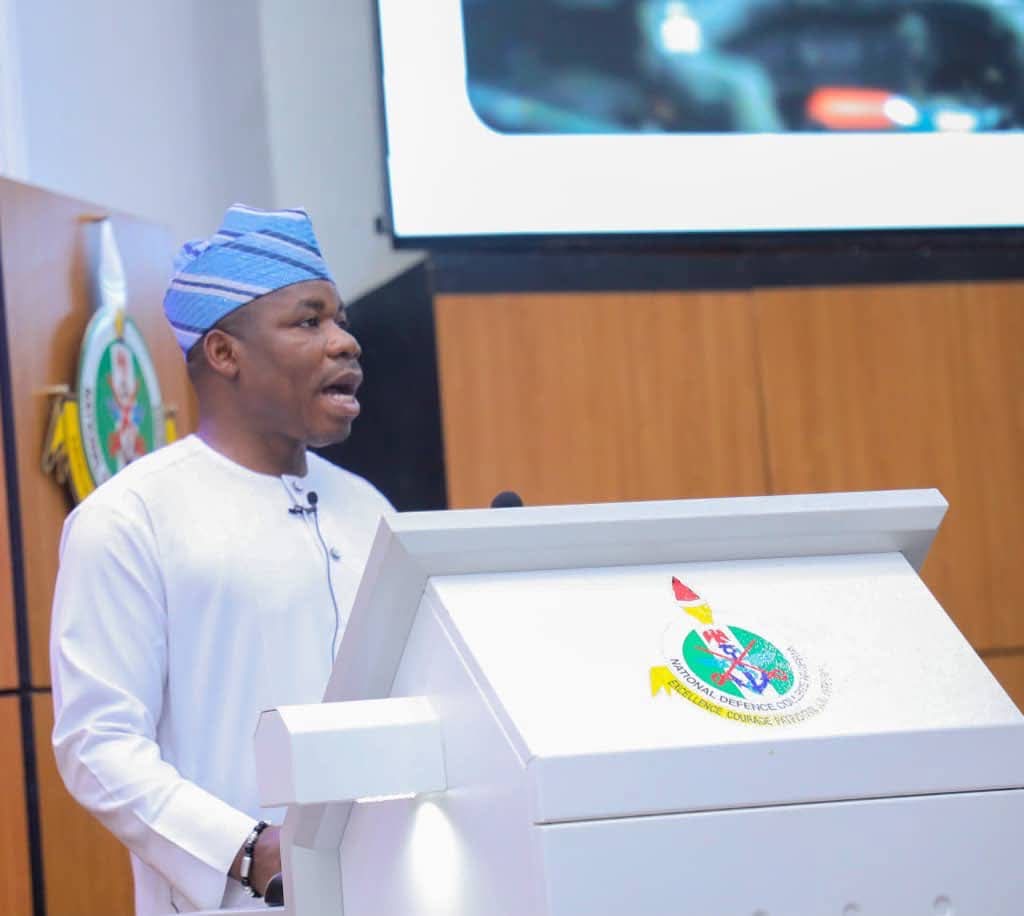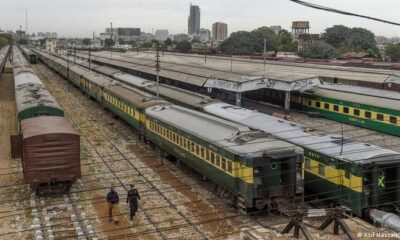AUTO STAKEHOLDER
NADDC DG Charts Nigeria’s New Industrial Future at National Defence College Lecture

In a compelling and strategically charged lecture delivered at the National Defence College (NDC), Abuja, the Director-General of the National Automotive Design and Development Council (NADDC), Otunba Oluwemimo Joseph Osanipin, made a bold case on why Nigeria must urgently rebuild its industrial base to secure its economic stability, technological independence, and national security.
Speaking to participants of Course 34, comprising senior military officers, high-ranking police officials, and strategic public-sector leaders, Osanipin presented a thought-provoking paper titled “Revitalizing Nigeria’s Industrial Base for National Development: Indigenous Technologies in Focus.”
Industrialization as a Security Imperative
Osanipin emphasized that no nation attains global relevance without a strong, self-sustaining industrial foundation. Nations that dominate automobile production, steel, innovation, and manufacturing, he argued, ultimately dominate geopolitics.
He stated that Nigeria’s economic strength, security resilience, and future competitiveness depend on a deliberate, government-backed push to revive local industries—particularly those with high technology content such as the automotive sector.
Nigeria’s Automotive Sector: Progress and Potential
Highlighting the strategic role of the automotive industry, Osanipin noted that Nigeria currently boasts:
Over 30 registered vehicle assemblers
An installed production capacity of over 423,000 units
More than $1 billion in cumulative investments in the past eight years
He described the automotive sector as a large-scale employment engine capable of absorbing skilled and semi-skilled labour, spurring innovation, and reducing the country’s heavy dependence on imported vehicles and spare parts.
Challenges on the Road to Industrial Renewal
The NADDC boss, however, acknowledged that Nigeria faces significant structural obstacles, including:
Poor infrastructure
Limited research and development funding
Skills shortages
Heavy reliance on imported components
Weak local supply chains
He stressed that reversing these trends requires long-term planning, consistent policies, and stronger collaboration between government, military institutions, private industry, and academia.
Opportunities Ahead: AfCFTA and Local Innovation
Osanipin also highlighted the opportunities presented by the African Continental Free Trade Area (AfCFTA), noting that a revitalized Nigerian manufacturing base could dominate the African automotive landscape if properly supported.
He pointed to the steady rise of local innovators like the engineers, fabricators, and SMEs—who are already proving that Nigeria can design, assemble, and produce globally competitive technologies.
Defence, Technology, and National Development
Drawing a direct link between industrial growth and national security, Osanipin argued that a technologically dependent nation is a strategically vulnerable nation. He urged the defence sector to take deeper interest in supporting and adopting indigenous technologies, noting that strong local industries reduce external dependence during emergencies and enhance military readiness.
Robust Engagement with Participants
The lecture sparked an engaging question-and-answer session, with military participants exploring how a stronger industrial base could enhance defence capability, logistics, and national development.
MIKE OCHONMA
EDITOR
-

 AVIATION5 years ago
AVIATION5 years agoPhoto News: Air Peace commence flight operations to South Africa
-

 Car News5 years ago
Car News5 years agoPolestar is recalls over 2000 electric cars due to software bug
-

 RAIL5 years ago
RAIL5 years ago36 Killed in Pakistan Train Accident
-

 Technology5 years ago
Technology5 years agoCommon mistakes in CO₂ emissions calculations
-

 Business5 years ago
Business5 years ago2016 Volvo XC60 review and specifications
-

 Reviews5 years ago
Reviews5 years ago2021 Audi A6 Specifications and Review
-

 SAFETY / CAR CARE5 years ago
SAFETY / CAR CARE5 years agoHandbrake warning light; what it means and what to do
-

 Reviews3 years ago
Reviews3 years agoDebutant Kia’s new K8 sedan benchmarks luxury, safety
